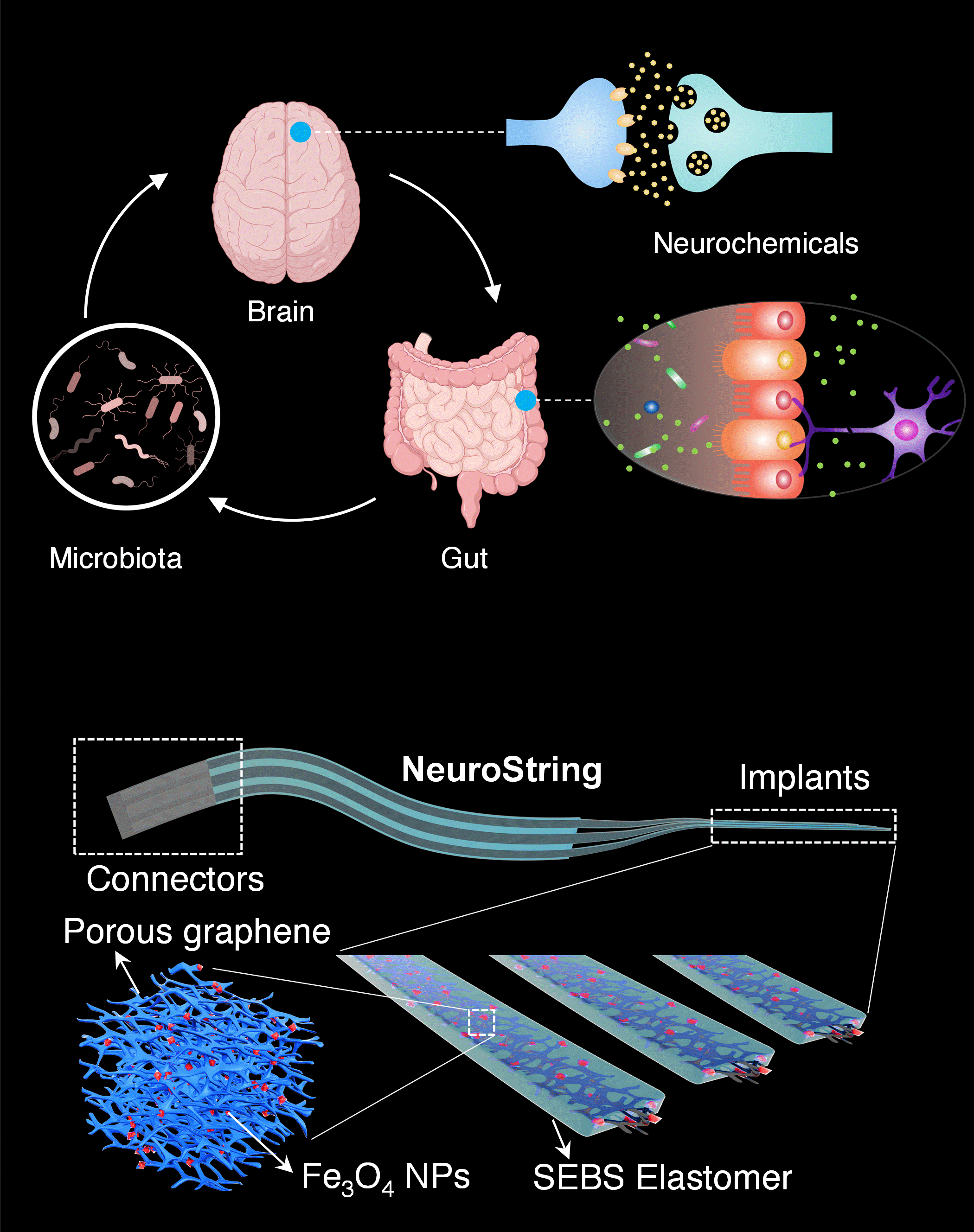Research
Working at the interface of engineering, biology, and intelligence, our lab’s research can be broadly categorized into the following interconnected domains:
Biosensor & Bioelectronics
References:
A tissue-like neurochemical sensor for brain and gut. Nature 2022.
Morphing electronics enable neuromodulation in growing tissue. Nature Biotechnology 2020.
Age-Adaptive Polymeric Skin Electronics Enhance Neural Data and Machine Learning Accuracy. Device 2025.
Skin-Conformal Electronics for Wearable Electrogastrography Monitoring. IEEE Journal of Flexible Electronics 2025.
Supported by NSF, Spartan Innovations.
Microrobotics
References:
TriMag Microrobots: 3D-Printed Microrobots for Magnetic Actuation, Imaging, and Hyperthermia. Advanced Materials, 2025.
Engineering Magnetotactic Bacteria as Medical Microrobots. Advanced Materials, 2025.
Micro/Nanorobots for biomedicine: delivery, surgery, sensing, and detoxification. Science Robotics 2017.
Electronic skins and machine learning for intelligent soft robots. Science Robotics 2020.
Micromotor-Enabled Active Drug Delivery for In Vivo Treatment of Stomach Infection. Nature Commun. 2017.
Supported by NIH, NSF, Henry Ford Health + MSU Health Sciences.
Engineered Living Materials
Projects and References:
'Biomanufacturing' helps building materials go green
New 'living' wood could be an environmental superhero
Robotic 3D Bioprinting of Entire Building Structures Using Biogenic Concrete
Mycoelectronics: Bioprinted Living Fungal Bioelectronics for Artificial Sensation. bioRxiv (under peer review), 2025.
Supported by DOE ARPA-E, NSF.


